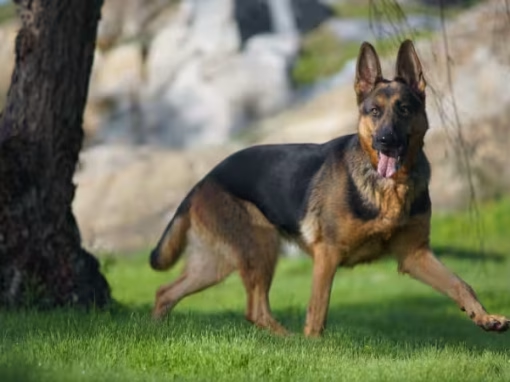The Yorkshire Terrier, commonly referred to as the Yorkie, is a small-sized dog breed renowned for its vivacious personality and elegant appearance. Originating from the United Kingdom, these dogs have become beloved companions worldwide, including here in Cape Town. This article explores key aspects of dog Yorkie care and training to help you foster a nurturing environment for your pet.
Known for their intelligence and energy, Yorkies require dedicated care and structured training to bring out their best qualities. As pets, they thrive under attention and excel with consistent engagement, making them ideal for families and individuals alike who are ready to invest in a long-term furry relationship. Their adaptability to various living conditions, paired with their manageable size, makes them particularly popular in urban settings where space is at a premium.
Characteristics of the Yorkshire Terrier
Physical Traits
Yorkshire Terriers are distinguished by their compact size, typically weighing between four and seven pounds. They possess a long, silky coat, which is steel-blue and tan in colour, often styled in a distinctive topknot. Despite their diminutive stature, Yorkies carry a robust terrier spirit, marked by a lively and affectionate demeanor.
Behavioural Traits
Yorkies are known for their intelligence and active nature. They display a curious and adventurous attitude, often expressing a fearless persona despite their small size. However, they can also exhibit stubborn tendencies, making consistent and patient training essential.
Training Your Dog Yorkie
Establishing Basic Obedience
Training a Yorkie requires a gentle yet firm approach, focusing on positive reinforcement techniques such as praise and treats. Start with basic commands like ‘sit’, ‘stay’, ‘come’, and ‘down’. Early socialisation is crucial to help your Yorkie develop a friendly and confident temperament, avoiding overly protective or aggressive behaviours.
Addressing Common Training Challenges
Yorkshire Terriers can be challenging to house train. Establishing a consistent routine and using rewards for successful outdoor bathroom breaks can mitigate this issue. Due to their intelligent and sometimes wilful nature, Yorkies benefit from variety in training to keep them engaged and responsive.
Health and Grooming
Grooming Needs
The Yorkie’s coat requires regular maintenance to prevent tangles and matting. Daily brushing and professional grooming every six to eight weeks are recommended. For pet owners in Cape Town, keeping a Yorkie in a shorter, more manageable “puppy cut” may be preferable to simplify grooming.
Health Considerations
Common health issues in Yorkies include dental problems due to their small jaw and crowded teeth, necessitating daily teeth cleaning. They are also prone to certain genetic conditions like patellar luxation and tracheal collapse, underscoring the need for regular veterinary check-ups.
Nutritional Needs
A balanced diet tailored to small breeds is vital for maintaining your Yorkie’s health. Opt for high-quality dog food that specifies meat as the first ingredient. Due to their fast metabolism, Yorkies often benefit from several small meals throughout the day rather than one large feeding.
Behavioural Management
Managing Excessive Barking
Yorkies may develop a habit of persistent barking. Training to reduce this behaviour includes ensuring they get enough physical and mental stimulation. Teach your Yorkie the ‘quiet’ command and use it consistently whenever they bark inappropriately.
Ensuring Proper Socialisation
Given their terrier lineage, Yorkies sometimes exhibit a strong prey drive and can be reserved with strangers. Proper socialisation from a young age can help mitigate these tendencies, ensuring your Yorkie is well-adjusted and behaves appropriately in various social settings.
Historical Background
The Yorkshire Terrier, affectionately known as the Yorkie, is a breed with a rich and storied history that traces back to the mid-19th century in Northern England. This article delves into the origins of the Yorkie, exploring its development from a ratter to a beloved companion.
Industrial Revolution Beginnings
The Yorkie’s story begins in the midst of the Industrial Revolution in England. Originally bred by working men in counties such as Yorkshire and Lancashire, the Yorkie was valued for its ability to hunt and kill rodents that plagued the mills and mines. These early Yorkies were larger than the modern breed, and they were bred for utility rather than appearance or temperament.
Scottish Influence
The breed’s development was significantly influenced by the migration of Scottish workers to England, who brought with them various types of terriers, including the Clydesdale Terrier or Paisley Terrier. These dogs were eventually crossbred with local terrier breeds, contributing to the Yorkie’s lineage.
Development into a Companion Dog
Refinement of the Breed
By the late 1800s, the Yorkie’s appearance and role began to change. Breeders started to select for smaller size and greater beauty, shifting the Yorkie’s role from a working dog to a companion animal. During this time, the Yorkie quickly became a fashionable pet for Victorian ladies, who appreciated the dog’s small size and striking appearance.
Official Recognition
The breed was officially recognised by the Kennel Club of England in 1886, and its popularity soared. The Yorkie’s fine, silky coat and its vibrant personality made it a favorite in dog shows and in homes.
Key Figures in Yorkie History
Notable Dogs and Breeders
Several Yorkies and breeders played pivotal roles in shaping the breed. Huddersfield Ben, born in 1865, is considered the father of the breed, known for his excellent form and desirable traits. Owned by Mary Ann Foster, Ben’s qualities were widely sought after for breeding purposes and helped establish the breed standards used today.
Modern Yorkies
The Breed Today
Today, Yorkies are one of the most popular breeds worldwide. They are particularly cherished for their loyalty and suitability as companion animals, thriving in various living situations from apartments to large homes with yards.
Health and Lifespan
Yorkies are generally healthy, with a lifespan of around 11 to 15 years. However, they do have breed-specific health concerns, such as dental issues and patellar luxation, that owners need to manage with regular veterinary care.
Conclusion
Yorkshire Terriers, with their endearing appearance and spirited character, make excellent companions. Adequate training, health care, and nutritional management are crucial to ensure your Yorkie thrives. By understanding and catering to their specific needs, you can enjoy a rewarding and lasting relationship with your dog Yorkie.
By providing comprehensive care and training for your Yorkshire Terrier, you’ll ensure that your small companion lives a full and vibrant life. Whether in Cape Town or elsewhere, the unique challenges and joys of raising a Yorkie offer an enriching experience to any dog owner.



